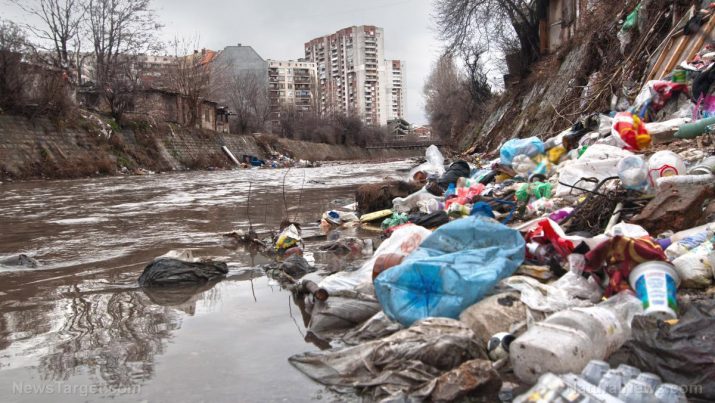
South African wastewater found to contain heroin and cocaine; scientists say problem is worldwide
Tuesday, May 08, 2018 by Ralph Flores
http://www.biosludge.news/2018-05-08-south-african-wastewater-found-to-contain-heroin-and-cocaine-scientists-say-problem-is-worldwide.html

The results of a water test in South Africa revealed the last things that a person would want in their tap water. Researchers from the University of South Africa (Unisa) found heroin, cocaine, and traces of other drugs in wastewater collected from a provincial treatment plant in Gauteng. The team presented their findings at a water research seminar during Unisa’s Research & Innovation Week.
According to researchers, this sheds light on important issues regarding the overall health and lifestyle of the population in the area. In particular, the water tested positive for trace amounts of statins, fibrins, as well as other medicinal and recreational drugs. The drugs, which come from a variety of sources, including abattoirs, hospitals, communities, factories, fish farms and land farms, flow into the country’s river system and dams.
The results of the current study mirror previous findings, where researchers also discovered drugs in a wastewater treatment plant in Daspoort. The samples, which were taken in July and August 2017, revealed the presence of psychoactive drugs such as amphetamines and anti-cholesterol medication in the water. Even further back, samples from the Hennops and Jukskei rivers and Hartebeespoort Dam revealed trace amounts of the antibiotics ampicillin and ciprofloxacin, pain medication such as ibuprofen, testosterone hormones, and various azole antifungals.
Humans are polluting the world’s water supply
This problem isn’t limited to South Africa, however. In a community near Albany, New York, scientists found cocaine and morphine in untreated wastewaters after testing. The method, dubbed as “sewage epidemiology,” has been used to determine which drugs are being used in a community by sampling public water supplies. For example, in a campus in Washington, water tests will see a spike in amphetamine levels “during the finals.” Elsewhere, amphetamines have been taking hold in cities in Europe. (Related: Devastating water pollution now rampant across China.)
The presence of these drugs in the water is prevalent and varied, according to professor Titus Msagati of Unisa’s nanotechnology and water sustainability research unit. Aside from drugs, he and his team also found plasticizers, vermicides, insect repellent, analgesics, and pesticides. “The wastewater treatment plant was not able to remove these compounds, probably because they were not designed to deal with such compounds,” he explained.
The wastewater process is an important aspect of water conservation efforts: Wastewater, which contains pollutants and toxins that can destroy ecosystems, is converted into an effluent which can be used in the water cycle. The process is done not only to reduce environmental impact but also to recycle the water for other purposes.
According to the Unisa team, the results presented by the study showed that there are no measures in place to scale the presence of contaminants and regularly monitor it.
“Such testing is extremely expensive, however, and no organisation on its own can monitor the water supply for new contaminants,” Msagati said. “We need to come together collectively, as the industry, government, academia and the community, including NGOs.”
More research planned
After this study, the Unisa team will take part in a larger effort to identify a wider scope of contaminants in South Africa should be monitored and acted upon. The new research, which will focus on water treatment plants in 25 areas, will cover chemicals such as “flame retardants, X-ray contrast fluid, the synthetic hormone EE2, pesticides such as atrazine and simazine, natural chemicals such as caffeine, and antibacterials such as triclosan, which are commonly used in consumer products such as toothpaste, soap and detergent,” according to a statement released by Unisa.
The study will run for three years and will be funded by the Water Research Commission (WRC). Aside from Unisa, researchers from the University of Western Cape will join the research. Chris Swartz, a water use expert from Chris Swartz Water Utilization Engineers, will serve as the project leader of the study.
Learn more about keeping our water clean by heading to CleanWater.news today.
Sources include:
Tagged Under: Tags: badpollution, cocaine, contaminated water, drugs, ecosystems, environment, environmental hazards, Gauteng, Heroin, Prescription drugs, Public Health, public water supply, recycled water, sewage epidemiology, statins, tap water, toxic chemicals, toxic water, UNISA, wastewater, water contaminants, water pollution, water treatment, water treatment plants


